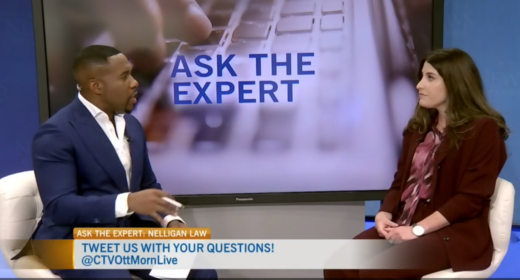Even before the time of Moses and the Ten Commandments, a higher authority imposed an established system of rules by which to live. Some rules, such as honouring your father and your mother, are rules of convention or civility, the breach of which carries no particular sanction except a social one.
But some rules take the form of laws, which are imposed by the state, usually as a matter of public policy or safety, such as driving on the right side of the highway. Breaking these rules has a very real consequence, usually attaching civil liability or criminal penalty.
There are also rules in the world of estate planning. Some of the rules are very simple but have disastrous consequences if they are not followed. For example, if a testator (the person to whom a Will belongs) fails to have two witnesses to his or her Will, who are present at the same time for the signing of the Will as the testator, then the Will is invalid under the laws of the Province of Ontario. The consequence is that the testator will die intestate (without a Will) and his or her estate will be distributed according to statute, which may not coincide with the wishes of the testator. In addition to the procedural requirements in the making of a Will, the law imposes a legal obligation on a testator to consider the needs of dependants and to make adequate provision for them in the Will. The question then becomes one of determining which persons qualify as dependants, so as to attract the protection of the law.
By way of example, if a person making a Will has outstanding obligations to support a spouse or children, then appropriate instructions must be given to the trustee of his or her estate to be mindful of these obligations following death. Unless a contrary intention appears in a court order or an agreement, a support order is binding upon the estate of the deceased. The obligation to protect dependants does not have to flow from a specific order or from a separation agreement. Even in a perfectly normal family situation,
the obligation may arise. If the testator has an immediate family member who has not become independent, such as a stay-at-home spouse or children who are still in school, then the law requires that the testator make adequate provision for these dependants in the Will. Most of the time, the testator will voluntarily make these provisions without a second thought. This illustrates a situation where the legal obligation to protect dependants coincides with the testator’s own moral obligation to leave his entire estate to his family.
Sometimes the legal and moral obligations of a testator can collide. Take the example of a testator with a spouse by virtue of a second marriage. The spouse is fully employed and capable of being independent.The testator would likely be drawn to leave his entire estate to his spouse, however, add to that situation a disabled child from a first marriage, who will require extra care and protection throughout the remainder of his or her life.To meet this legal obligation, does the testator simply leave the whole estate for the benefit of the disabled child? It may turn out that such a bequest would be excessive to the child’s actual financial needs.
A recent decision of an Ontario court had to weigh this conundrum and held that the testator had to balance his moral obligations to his capable spouse with the needs of his incapable child. There ar e many variations on this theme. Often the situation is reversed — a testator will have to balance the interests of a dependant spouse of a second marriage with the wishes of independent children of a first marriage to whom there is no legal obligation. If a testator has no dependants at all, then the obligation to provide for family members is primarily moral because in the Province of Ontario, such a testator is free to dispose of his or her estate without any familial obligations.
Sometimes the conflict occurs without any reference to the needs of dependants. Every spouse has proprietary rights, which arise on the death of the other spouse. A surviving spouse has the option to choose between the benefits provided by the Will of a deceased spouse or the benefits conferred under the Family Law Act. A surviving spouse may elect to choose the benefits offered under the Family Law Act. An equalization payment is calculated as though the couple had separated the day before one spouse died. If the surviving spouse has accrued more assets during marriage than the testator, this does not create a problem and the obligation can be ignored, but the right to make this election must be considered by a testator who may not be planning to provide any benefit for his surviving spouse in his or her Will.
Absent of any familial obligations, the testator will have to wrestle with moral obligations, which may extend beyond the confines of the testator’s family. These include consideration of charitable bequests often motivated by gratitude for assistance to themselves or someone close to them rendered by an institution, such as a school or a hospital, or a physician. Lifelong friendships will often generate a legacy under a Will.
A testator may need to consult a lawyer to determine legal obligations, but the moral obligations will remain just a matter of conscience.
John Johnson is a partner with the law firm of Nelligan O’Brien Payne LLP (www.nelligan.ca), with offices in Ottawa, Kingston, Vankleek Hill and Alexandria.
[This article was originally published in the March/April 2006 issue of Fifty-Five Plus Magazine.]


